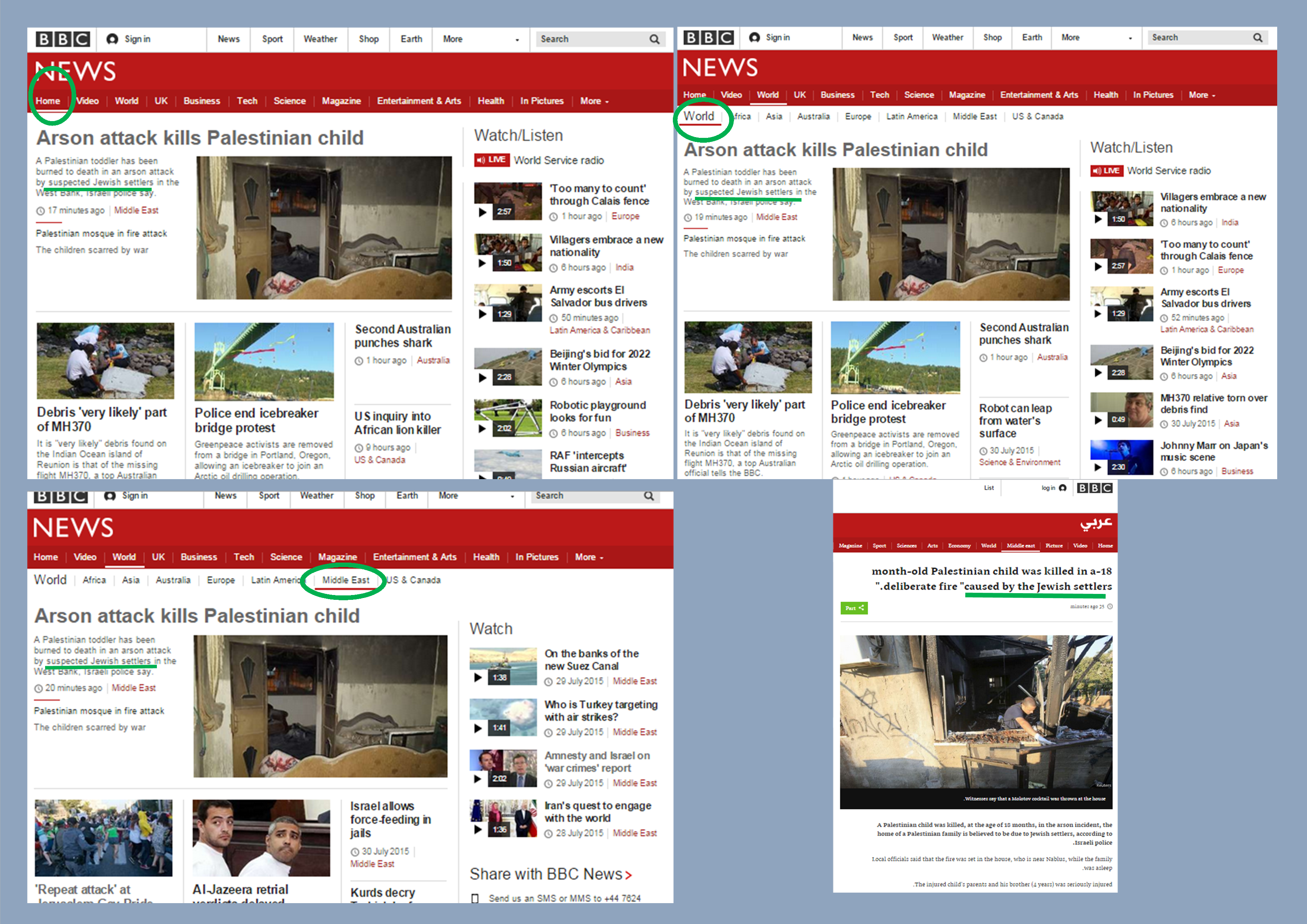The double standard evident in the language used by the BBC when reporting terror attacks in differing locations is regularly discussed on these pages and has been the subject of numerous complaints to the BBC.
In April of this year the BBC responded to one such complaint by stating that:
“Where there is an ongoing geopolitical conflict – as in the Middle East – to use the term “terror attack” or similar might be seen to be taking sides. There are those who might consider the actions of the Israeli government to be considered as terrorist acts.
In a situation where a country that is not involved in a direct physical combat comes under attack, it may be reasonable to construe that as a terrorist incident.
The use of such terminology is never an exact science but where a continuing conflict exists, it is reasonable that the BBC would not wish to appear to be taking sides.”
Regrettably, that response subsequently received endorsement from the UK’s communications regulator OFCOM.
The cynical approach behind the BBC’s policy came into full view last week in an interview with an Israeli guest in the September 19th edition of the BBC Radio 4 programme ‘Today‘ that was described as follows in the running order:
“The leader of one of the world’s most conflict-ridden cities has questioned official UK police advice to “run, hide, tell” during terror attacks and has suggested Britons should take on jihadists to save lives. Nir Barkat, the mayor of Jerusalem, said people should “engage” the enemy directly. He joins us on the program.”
In his introduction to that item (from 01:12:17 here) presenter John Humphrys made it perfectly clear that he (and his organisation) knows perfectly well that both Israel and the UK suffer from terror attacks.
Humphrys: “The official advice to people in this country if they get caught up in a terrorist attack is ‘run, hide, tell’. But that, according to Nir Barkat, is wrong and he’s the mayor of Jerusalem which has seen more attacks than pretty much any other city on the planet and he’s on the line.”
In other words, when it is convenient for a particular purpose the BBC is perfectly happy to acknowledge both the existence and the scale of terrorism against Israelis. But when the corporation reports on (some of) those attacks in Israel, it deliberately refrains from describing them as terror because it is concerned about its own image and does “not wish to appear to be taking sides”.
Related Articles:
Reviewing BBC reporting of vehicular attacks in France and Israel
BBC coverage of Berlin terror attack again highlights double standards
Absurdity of BBC’s ‘Language when Reporting Terrorism’ guidance on display again
BBC’s vehicular terrorism double standards on display again
BBC Complaints: terror attacks in Jerusalem and Tunisia are “very different”
BBC bias on terrorism highlighted again in reports from Spain




